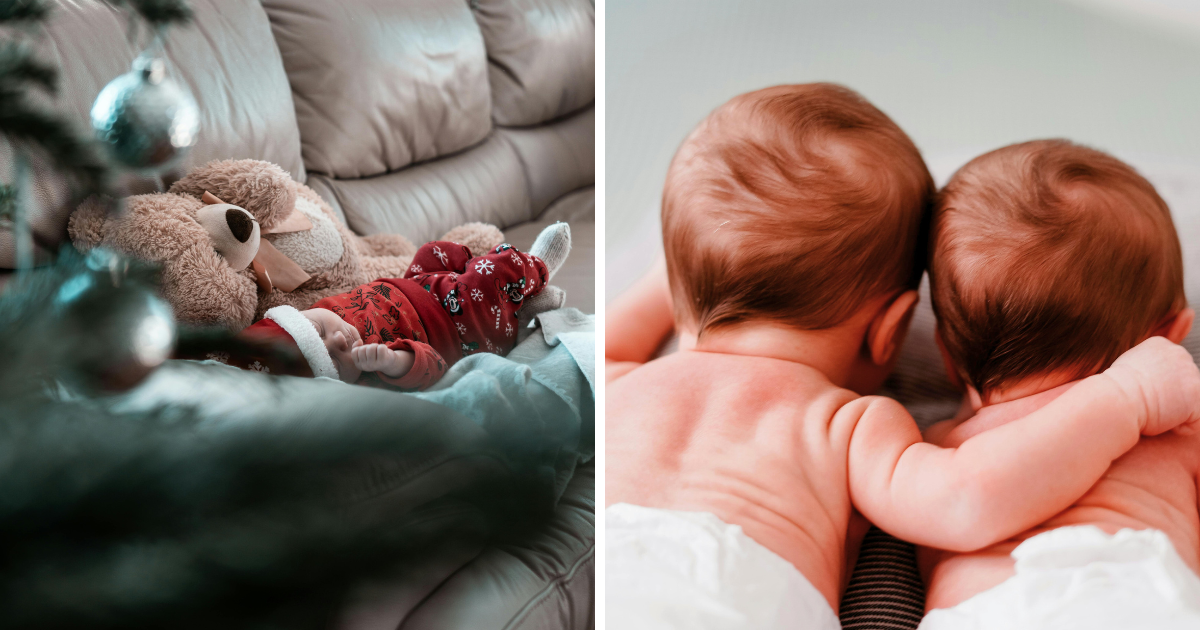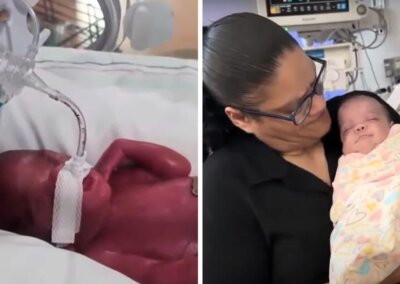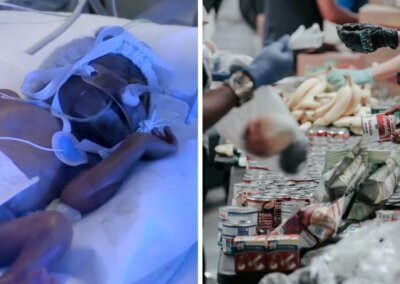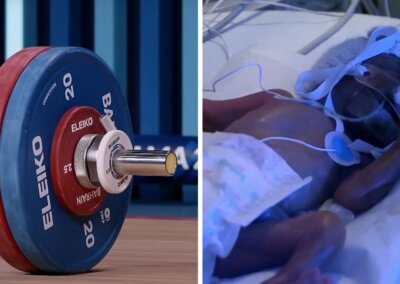Identical twin girls, Lucy and Lilly, have made it home in time to celebrate their first Christmas after being born at just 31 weeks.
The little girls, born to Queensland couple Melissa and Matthew Heald, spent a combined 125 days in hospital care but have finally made it home in time for the festive season.
Melissa, the twins’ mum, was being monitored as she was identified as having a high-risk pregnancy, with concerns about the possibility of the twins having twin anaemia polycythaemia sequence and twin-to-twin transfusion syndrome, rare but serious conditions affecting twins who share a placenta. From 18 weeks gestation, Melissa had to make fortnightly trips to the hospital to check up on her and her unborn babies.
Lucy and Lilly ended up being born by emergency caesarean section at only 31 weeks gestation. Lucy weighed 1.4kg whilst little Lilly was just 867 grams. Lucy had to be cared for in the Neonatal Critical Care Unit for 50 days and her smaller sister for 75 days.
Lilly had to undergo surgery for a bowel blockage less than 24 hours after her birth and had a second surgery when she was just 64 days old. Fortunately, this successful surgery marked a turning point for the little girl and she was able to leave the NCCU just over 10 days later.
Lucy and Lilly’s 12-year-old sister, Billie, and 8-year-old brother, Cooper, are celebrating having their little sisters home. Family members are coming from all over Australia to celebrate the twins’ first Christmas.
Their mum, Melissa, said “To be able to have both our girls home for Christmas is really special for all of us”.
Lucy and Lilly are joining the ranks of premature babies who are increasingly surviving at earlier gestations. Key studies in recent years have documented the improving outcomes for these babies. A 2008 study looking at survival rates for a neonatal intensive care unit in London found that neonatal survival rates at 22 and 23 weeks gestation had improved over time. In 1981-85, no babies who were born at these gestational ages survived to discharge. However, by 1986-90, 19% did and this increased to 54% in the period 1996-2000.
In the decade to 2019 alone, the survival rate for extremely premature babies born at 23 weeks doubled, prompting new guidance from the British Association of Perinatal Medicine (BAPM) that enables doctors to intervene to save premature babies from 22 weeks gestation. The previous clinical guidance, drafted in 2008, set the standard that babies who were born before 23 weeks gestation should not be resuscitated.
Spokesperson for Right To Life UK, Catherine Robinson, said “Welcome home little Lucy and Lilly! How inspiring to read about these premature twins, born at just 31 weeks. It’s amazing to know that medical advances mean that little babies born so early and facing big challenges are able to overcome these and not only survive, but thrive. We hope they all have a wonderful first Christmas together”.












